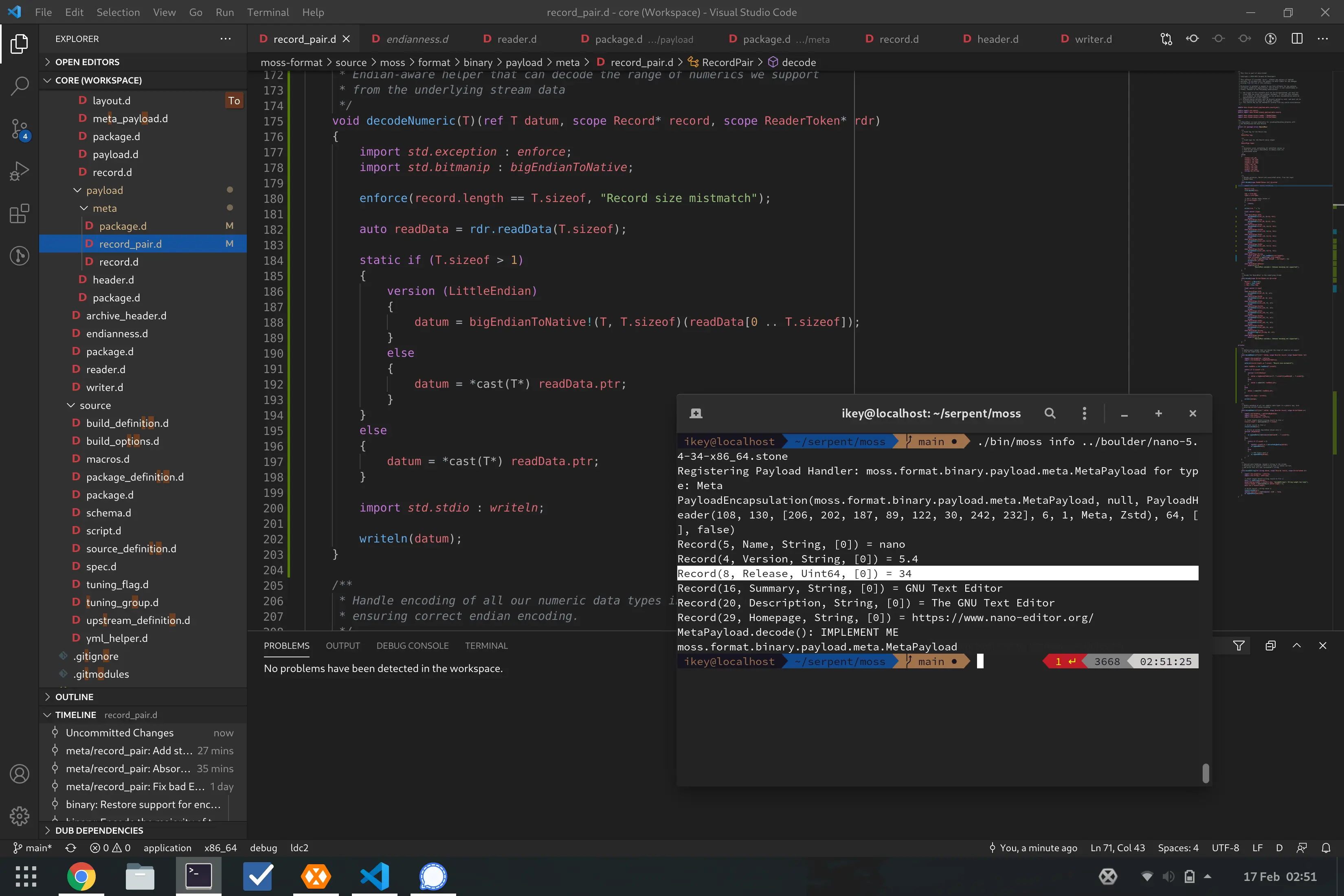It's been 8 days since our last blogpost and a lot of development work has happened
in that time. Specifically, we've completely reworked the internals of the moss-format
module to support read/write operations.. Which means installation is coming soon (TM)

So, many commits have been made to the core repositories, however the most
important project to focus on right now is moss-format, which we used to
define and implement our binary and source formats. This module is shared
between boulder, our build tool, and moss, our package manager.
We've removed the old enumeration approach from the Reader class, instead
requiring that it processes data payloads in-place, deferring reading the
content payload streams. We've also enforced strong typing to allow
safe and powerful APIs:
import moss.format.binary.payload.meta : MetaPayload;
auto reader = new Reader(File(argv[0], "rb"));
auto metadata = reader.payload!MetaPayload();
Right now we can read and write our MetaPayload from and to the stream,
allowing us to encode & decode the metadata associated with the package,
with strong type information (i.e. Uint64, String, etc.)
Next Steps
We need to restore the IndexPayload, LayoutPayload and ContentPayload
definitions. The first two are simply data payloads and will largely
follow the design of the newly reimplemented MetaPayload. Then we restore
ContentPayload support, and this will allow the next steps: unpack, install.
Many of the babysteps required are done now, which power our binary format.
The design of the API is done in a way which will allow powerful manipulation
via the std.algorithm and std.range APIs, enabling extremely simple and
reliable installation routines.
It might seem odd that we've spent so much time on the core format, however I should point out that the design of the format is central to the OS design. Our installation routine is not unpacking of an archive.
With our binary format, the stream contains multiple PayloadHeaders, with fixed lengths, type, tag, version, and compression information. It is up to each Payload implementation to then parse the binary data contained within. Currently our Payloads are compressed using ZSTD, though other compression algorithms are supported.
So, we have the MetaPayload for metadata. Additionally, we encode all unique
files in the package in a single compressed payload, the ContentPayload. The
offset to each unique file (by hash) is stored within the IndexPayload, and
the filesystem layout is encoded as data within the LayoutPayload.
In order to unpack a moss package, the ContentPayload blob will be decompressed
to a temporary location. Then, each struct within the IndexPayload can be used
to copy portions (copy_file_range) of the blob to the cache store for permanence. We skip each Index
if its already present within the cache. Finally, the target filesystem is populated
with a view of all installed packages using the LayoutPayload structs, creating
a shallow installation using hardlinks and directories.
The net result is deep deduplication, atomic updates, and flexibility for the user. Once we add transactions it'll be possible to boot an older version of the OS using the deduplication capabilities for offline recovery. Additionally there is no requirement for file deletion, rename or modification for an update to succeed.
Nutshell
Huge progress. Major excitement. Such wow. Soon alphas.